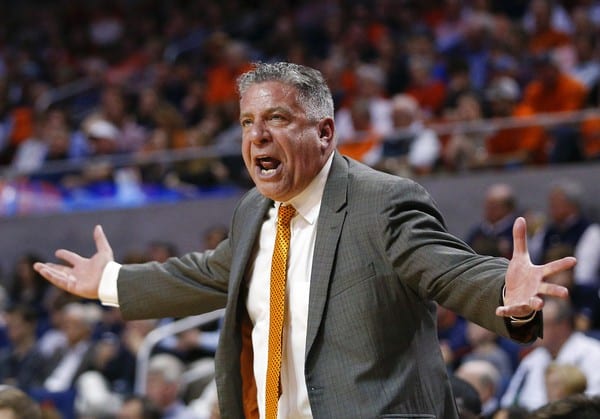Sports
The parents’ guide on when — and when not — to talk to your kids’ coach: How to win at youth sports

CLEVELAND, Ohio — It is not easy being a youth sports coach. Often the coaches are volunteering their time to oversee and develop kids, while also trying to ensure they have as much fun as possible.
In an ideal world, parents would be happy to just show their support from the sideline. Realistically, however, there are so many issues involved in youth sports, and parents will have one conversation, or more, with the coach about their child during the season.
Cleveland.com posed questions to two youth sports authorities about best practices for parents when it comes to talking to their kids’ coaches:
Greg Bach, senior director of communications and content for the National Alliance on Youth Sports; and Karissa Niehoff, the CEO of the National Federation of State High School Associations. Their responses have been edited for clarity and length.
In our partnership with WKYC called “How to win at youth sports (without going broke or breaking down),” we talked to experts, coaches and families about the current landscape and what we can do better to develop healthy, well-adjusted players.
1. My kid is in danger of being cut. Should I talk with the coach?
Bach: Before signing your child up for a program in which cuts are made, talk to him or her to explain the process that not everyone is going to make the team.
Some kids who are competitive at an early age will be OK with that risk involved and welcome the challenge. Others may be better suited for a recreation-based program in which everyone gets an equal amount of playing time and no one gets cut.
Coaches who must cut kids have a difficult job – they don’t need parents interfering in the process.
If your child gets cut, use it as a lesson on how to move forward from disappointment and get excited about the next season or next opportunity they have to play.
Niehoff: Encourage the boy or girl to talk to their coach if there’s a concern in advance during tryouts, and then if that happens, and the student athlete comes home and says, “Yeah, I talked to Coach, and here’s what I learned. Here’s what I need to do better for the remainder of tryouts,” great.
And the hard thing is, sometimes you’re just not going to make the team, but the honest conversation between the student-athlete and the coach is where to start.
Asking about a coach’s policies on playing time and assigning positions to see if your child will get a chance to learn many different elements of the sport is a good topic for a first conversation with a coach, says Greg Bach of the National Alliance for Youth Sports.Laura Johnston
2. My child saw an incident of bullying on his team. Should I talk to the coach about it? And if so, how?
Bach: Bullying has serious long-term consequences for the bully, the child being bullied and also those who witness it.
For starters, thank your child for coming forward and sharing with you what they saw. For many kids it can be traumatic to see a friend or teammate being bullied, and kids are often afraid or unsure of how to respond.
In a private conversation, let the coach know what was witnessed. This information will enable the coach to talk with the child who was bullied, as well as the child who committed the bullying, to gather more information and take the necessary steps for resolving the situation.
Niehoff: If a child comes home and says, “I saw this, I heard this, I witnessed this,” the parent now is aware, and this is one of those situations where you’re almost in like a mandated reporter kind of situation.
As a parent, I would ask my child if they talked to the coach. And if the child says, “I was too afraid, I didn’t know what to do, I’m telling you now,” then at that point, I think the parent has absolutely the opportunity to pick up the phone and call the coach. This isn’t an accusatory phone call, it’s more FYI: “I need to let you know this is what they experienced,” and at that point, the parent has done their job.

How competitive is your child’s league? That’s an important question to ask before signing up for the season.Laura Johnston
3. The coach is too competitive and has placed winning above all else. How should I address it?
Bach: If you signed your child up for a recreation-based program in which equal playing time is required, but the coach is only playing the best kids to rack up wins, then you should speak with the recreation director of the program to alert them to the problem.
The National Alliance for Youth Sports encourages recreation departments to clearly state the philosophy of their program during registration so that parents can make the best decisions for their child.

Parents should be careful when raising the issue of whether a coach is putting too much pressure on the players. Karissa Niehoff of the National Federation of State High School Associations says:”..What’s the evidence that’s making the parent feel this way, versus, my child just needs to get better at certain skills or their certain contribution to the team?”
Getty Images
4. My kid’s coach is way too intense and puts too much pressure on the kids. How should I address it with him?
Bach: When coaches are behaving inappropriately in any way that goes against the policies of the program and what’s best for the kids, speak with the league director so that they can discuss with the coach.
Niehoff: Perception is reality. So what is the evidence that leads to this feeling that there’s too much pressure? Is it unrealistic practice times‚ expectations? Is it sort of verbal communications that are critical and not developmental?
And that’s a huge difference. Kids need to know if there’s something that they need to improve on. There’s a way to tell kids about how to do that and talk about performance that needs to get better without breaking down their spirit.
If it’s the second one, approach the coach and have that conversation.
5. My kid’s grades are slipping, and I’m considering pulling him/her out of their sport. How can I address this with the coach?
Bach: Be respectful and give the coach as much advance notice as possible. In a recreation-based program, a child departing midseason isn’t going to cause any disruption. At the more competitive levels of play, removing a player from a team can create big headaches, but most coaches will be understanding and make adjustments.
Speaking with kids about how they have a responsibility to the team to do their schoolwork can often help sidestep problems from developing; but if your child is unable to keep their grades up, parents may have no choice but to remove them from the team.
Niehoff: As a parent, you really want to dig into what’s causing the slip. Is it a social relationship, social stuff? Is it I’m not putting the time to do my homework? Well, what is your kid doing when they’re upstairs after practice? Are they on their screen?
Generally, we see that kids that are in season do better because they know they have to do well academically to compete, and they’re more structured.

When a coach makes an in-game mistake, it’s best for a parent not to get involved, and save that emotion for a favorite pro or college team, says Greg Bach of the National Alliance for Youth Sports.Getty Images
6. My kid’s coach made a decision that cost them the game. Should I do/say something?
Bach: Leave the second-guessing of play calling and game-day strategy to the college and professional teams that you cheer for. And don’t badmouth the coach’s strategy in the car ride home from games, as your children will begin to doubt the coach’s ability and lose respect for them through your critiques.
If you think you can do a better job, step up and volunteer to coach a team – recreation departments are always in need of volunteers to keep their youth sports programs going.
Niehoff: It’s really not the business of a parent to say that a coach made a decision that cost the game.
7. My kid’s coach has been known to use foul language with the team and I’m not comfortable with that. What should I do?
Bach: Foul language in youth sports is unacceptable. Speak with the director of the program so that they can address this inappropriate behavior with the coach.
Niehoff: Never appropriate.

Experts say that if a child signs up for a team, it’s reasonable for a coach to expect that player to be at practices and games, unless an unforeseen conflict arises.Getty Images/Cavan Images RF
8. My kid has obligations outside of sports that may prevent them from being there everyday. How should I address this with the coach?
Bach: Before the season speak with the coach to let them know. Be prepared to abide by the coach’s decision.
If they have a team rule that the kids who attend practice that week get the bulk of the playing time, don’t expect those rules to change for your child. If your child can’t commit to the entire season of practices and games, understand that other kids who are fully committed are likely going to receive more game action.
Niehoff: I would say to the parent, if you all want to participate on this team, you make a choice: You’re going to participate in the schedule of the team unless there’s some sort of unique life- or health-related incident that has to do with the well-being of the child or the family.
9. My kid wants to play a certain position. How can I talk to the coach about giving them an opportunity to do that?
Bach: Before signing your child up for a program, ask if there are policies on equal playing time and if coaches are required to make sure kids get to play all the positions. Not every child is going to get the chance to play quarterback or shortstop. Coaches have limited practice time to teach skills and positions, so you’ll need to talk to your child before the season to explain that chances are they likely won’t be playing the position they covet.
Some coaches do a terrific job of rotating kids so everyone gets to experience the different positions, or at least a lot of them.

Coaches and parents can team up to work together and help give a child more confidence when they take the field.Getty Images
10. My kid is not feeling confident. What should I do?
Bach: Confidence is cultivated in many ways. If your child is struggling to hit a baseball/softball, suggest doing some extra practice at home together – and be sure to make it fun!
Pitch to your child, and then have them pitch to you and see who fares better. Or head to the local batting cage together – and then grab ice cream on the way home. And be sure that you are providing process-based feedback, not outcome-based. If your child takes some really good swings in the game, but doesn’t register a base hit, be sure your postgame comments are on the effort he/she put in; how they had a good eye and only swung at strikes; how they hustled down the first base line; etc.
ESPN and the National Alliance for Youth Sports offer a free Mental Health and Youth Sports Online Training that features dozens of experts and athletes sharing insights to build confidence.
Niehoff: It’s OK to say, “I know I’m not good at these things and it’s OK.” That’s all you can do is your best, and it’s OK to be anxious or afraid, but the coach doesn’t need to know in advance. The coach should know that every day for all kids is going to be filled with anxiety.
11. My kid wants to play at the next level. How can I help them get there? What do I need to know about recruiting?
Bach: Before the age of 12, your focus should be on exposing your child to a wide variety of sports so they can develop an assortment of skills and decide for themselves what they are passionate about.
For teens who are serious about a specific sport and love working hard to improve, talk with your local high school coach for insight on the best options.
For more on being a great youth sports parent, the NAYS offers a 40-minute online Parent Orientation program that covers how to be a model youth sports parent, navigating the challenges of competing, safety, nutrition, hydration and more.
Niehoff: Remember that 96%, in general, of high school student athletes will never play at the next level, and that’s Division I through III across sports. So, be realistic.
If they’re interested in playing at the next level, have a solid understanding of your child’s abilities, take a look at what grade they’re in. Connect with realistic opportunities in the future, work with the school and the coach to make sure that it’s a healthy, collaborative informed pathway to the next level, if that’s appropriate.










